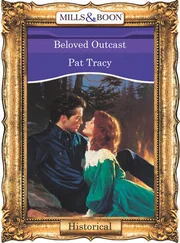Denver knew about several people, from hearing her mother and grandmother talk. But she knew, personally, only two: an old man with white hair called Stamp and Lady Jones. Well, Paul D, of course.
And that boy who told her about Sethe. But they wouldn't do at all.
Her heart kicked and an itchy burning in her throat made her swallow all her saliva away. She didn't even know which way to go. When Sethe used to work at the restaurant and when she still had money to shop, she turned right. Back when Denver went to Lady Jones' school, it was left.
The weather was warm; the day beautiful. It was April and everything alive was tentative. Denver wrapped her hair and her shoulders.
In the brightest of the carnival dresses and wearing a stranger's shoes, she stood on the porch of 124 ready to be swallowed up in the world beyond the edge of the porch. Out there where small things scratched and sometimes touched. Where words could be spoken that would close your ears shut. Where, if you were alone, feeling could overtake you and stick to you like a shadow. Out there where there were places in which things so bad had happened that when you went near them it would happen again. Like Sweet Home where time didn't pass and where, like her mother said, the bad was waiting for her as well. How would she know these places? What was more-much more--out there were whitepeople and how could you tell about them? Sethe said the mouth and sometimes the hands. Grandma Baby said there was no defense-they could prowl at will, change from one mind to another, and even when they thought they were behaving, it was a far cry from what real humans did.
"They got me out of jail," Sethe once told Baby Suggs.
"They also put you in it," she answered.
"They drove you 'cross the river."
"On my son's back."
"They gave you this house."
"Nobody gave me nothing."
"I got a job from them."
"He got a cook from them, girl."
"Oh, some of them do all right by us."
"And every time it's a surprise, ain't it?"
"You didn't used to talk this way."
"Don't box with me. There's more of us they drowned than there is all of them ever lived from the start of time. Lay down your sword.
This ain't a battle; it's a rout."
Remembering those conversations and her grandmother's last and final words, Denver stood on the porch in the sun and couldn't leave it. Her throat itched; her heart kicked-and then Baby Suggs laughed, clear as anything. "You mean I never told you nothing about Carolina?
About your daddy? You don't remember nothing about how come I walk the way I do and about your mother's feet, not to speak of her back? I never told you all that? Is that why you can't walk down the steps? My Jesus my."
But you said there was no defense.
"There ain't."
Then what do I do?
"Know it, and go on out the yard. Go on."
* * *
It came back. A dozen years had passed and the way came back.
Four houses on the right, sitting close together in a line like wrens.
The first house had two steps and a rocking chair on the porch; the second had three steps, a broom propped on the porch beam, two broken chairs and a clump of forsythia at the side. No window at the front. A little boy sat on the ground chewing a stick. The third house had yellow shutters on its two front windows and pot after pot of green leaves with white hearts or red. Denver could hear chickens and the knock of a badly hinged gate. At the fourth house the buds of a sycamore tree had rained down on the roof and made the yard look as though grass grew there. A woman, standing at the open door, lifted her hand halfway in greeting, then froze it near her shoulder as she leaned forward to see whom she waved to. Denver lowered her head. Next was a tiny fenced plot with a cow in it. She remembered the plot but not the cow. Under her headcloth her scalp was wet with tension. Beyond her, voices, male voices, floated, coming closer with each step she took. Denver kept her eyes on the road in case they were whitemen; in case she was walking where they wanted to; in case they said something and she would have to answer them. Suppose they flung out at her, grabbed her, tied her. They were getting closer. Maybe she should cross the road-now. Was the woman who half waved at her still there in the open door? Would she come to her rescue, or, angry at Denver for not waving back, would she withhold her help? Maybe she should turn around, get closer to the waving woman's house. Before she could make up her mind, it was too late-they were right in front of her. Two men, Negro. Denver breathed. Both men touched their caps and murmured, "Morning. Morning." Denver believed her eyes spoke gratitude but she never got her mouth open in time to reply. They moved left of her and passed on.
Braced and heartened by that easy encounter, she picked up speed and began to look deliberately at the neighborhood surrounding her.
She was shocked to see how small the big things were: the boulder by the edge of the road she once couldn't see over was a sitting-on rock. Paths leading to houses weren't miles long. Dogs didn't even reach her knees. Letters cut into beeches and oaks by giants were eye level now.
She would have known it anywhere. The post and scrap-lumber fence was gray now, not white, but she would have known it anywhere.
The stone porch sitting in a skirt of ivy, pale yellow curtains at the windows; the laid brick path to the front door and wood planks leading around to the back, passing under the windows where she had stood on tiptoe to see above the sill. Denver was about to do it again, when she realized how silly it would be to be found once more staring into the parlor of Mrs. Lady Jones. The pleasure she felt at having found the house dissolved, suddenly, in doubt. Suppose she didn't live there anymore? Or remember her former student after all this time? What would she say? Denver shivered inside, wiped the perspiration from her forehead and knocked.
Lady Jones went to the door expecting raisins. A child, probably, from the softness of the knock, sent by its mother with the raisins she needed if her contribution to the supper was to be worth the trouble. There would be any number of plain cakes, potato pies. She had reluctantly volunteered her own special creation, but said she didn't have raisins, so raisins is what the president said would be provided-early enough so there would be no excuses. Mrs. Jones, dreading the fatigue of beating batter, had been hoping she had forgotten. Her bake oven had been cold all week-getting it to the right temperature would be awful. Since her husband died and her eyes grew dim, she had let up-to-snuff housekeeping fall away. She was of two minds about baking something for the church. On the one hand, she wanted to remind everybody of what she was able to do in the cooking line; on the other, she didn't want to have to.
When she heard the tapping at the door, she sighed and went to it hoping the raisins had at least been cleaned.
She was older, of course, and dressed like a chippy, but the girl was immediately recognizable to Lady Jones. Everybody's child was in that face: the nickel-round eyes, bold yet mistrustful; the large powerful teeth between dark sculptured lips that did not cover them.
Some vulnerability lay across the bridge of the nose, above the cheeks.
And then the skin. Flawless, economical-just enough of it to cover the bone and not a bit more. She must be eighteen or nineteen by now, thought Lady Jones, looking at the face young enough to be twelve. Heavy eyebrows, thick baby lashes and the unmistakable love call that shimmered around children until they learned better.
"Why, Denver," she said. "Look at you."
Lady Jones had to take her by the hand and pull her in, because the smile seemed all the girl could manage. Other people said this child was simple, but Lady Jones never believed it. Having taught her, watched her eat up a page, a rule, a figure, she knew better.
Читать дальше











